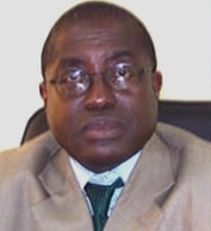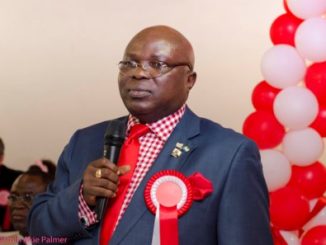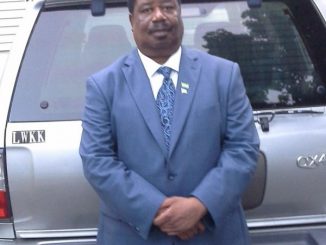
OPENING STATEMENT by Hon Franklyn Bai Kargbo, Attorney General and Minister of Justice of the Republic of Sierra Leone to the United Nations Human Rights Council Committee on Torture, Geneva, 02 May 2014
Mr. Chairman, Excellences Distinguished members of the Committee, Rapporteurs, human rights defenders, ladies and gentlemen, I bring you greetings from The President, His Excellency Dr. Ernest Bai Koroma, the Government and people of Sierra Leone. I apologise most profoundly for the inability of my delegation to be here yesterday as scheduled, due to circumstances beyond our control. I thank the committee for its understanding and rescheduling us at this segment of the proceedings.
Sierra Leone stands on its submitted report for this review and says that the following work has been done (post the submission) towards proper implementation and the realization by our citizens of the rights guaranteed under the Convention against Torture and other Cruel, Inhuman or Degrading Treatment or Punishment:
- That the prohibition against the infliction of torture on any of our citizens or persons living within our borders remains entrenched provisions in the Constitution of Sierra Leone, Act No.6 of 1991.[1]
- The Constitution in Chapters II (Fundamental Principles of State Policy) and Chapter III (The Recognition and Protection of Fundamental Human Rights and Freedoms of the Individual) contains all the rights enumerated in the Universal Declaration of Human Rights, as well as rights guaranteed in all major United Nations Conventions, regional and sub-regional human rights systems and international humanitarian law treaties, including the Geneva Conventions and Additional Protocols.
- Government in July 2013 set up an 80-person Constitutional Review Committee with a mandate to overhaul the constitution and strengthen our international human rights commitments to reflect our current reality as a fully-fledged compliant member of the international community. The process is to last for 24 months, culminating in a national referendum in 2016.
- In our continued bid to improve conditions for persons under detention in our prisons and other institutions, the Government recently laid before Parliament for enactment, the Correctional Services Bill. This proposed law incorporates international standards and eliminates old punishments including corporal punishment, prolonged periods of remand detention, hard labor, solitary confinement, among others. Permit me to note that some of these punishments are in practice obsolete and not in use in Sierra Leone. Government however recognizes the imperative to expunge them from our law books and is committed to doing so through this and other laws.
- Government has also presented to Parliament for passing into law, a Bill entitled the Criminal Procedure Act 2014 that regulates criminal trials. The Bill introduces several new mechanisms intended to simplify and speed up trials, alternative methods of serving sentences like community service, suspended sentences, probation service, as well as reducing instances of jury trials and the elimination of the Preliminary Investigation system, all of which contribute to delay in trials and causing overcrowding in our prisons and other detention facilities.
- The Government of Sierra Leone has also enacted the Local Courts Act of 2011 which brings the administration and delivery of justice at Chiefdom/community level under the purview of the Chief Justice. In so doing, the system now captures and addresses all matters usually adjudged at that level. Personnel of these courts have been trained and the supervision by the Chief Justice under the “formal” judicial system minimizes the delivery of harsh and unjustified decisions and thus reducing friction in the society. Noteworthy is the fact that the Truth and Reconciliation Commission did find that miscarriages of justice led to resentment and disenchantment by young persons in rural communities and helped to fuel the 11-year civil war that afflicted the country.
- Government has also legislated and made functional, the Independent Police Complaints Board. This entity will handle complaints against serving police officers for misuse of police powers or excess use of force and other infractions. The Board consists of people of good standing and experience and is not subject to the control, direction or supervision of Government or any Ministry or agency.
- The Human Rights Commission continues to grow in stature and effectiveness and has not been hesitant in the execution of its mandate. It has on several notable occasions conducted investigations and using its full powers under its mandate. The Commission has rightly taken center stage in the protection and promotion of human rights. It conducts investigations independently and makes recommendations to the Government, in the full knowledge of its powers and accorded space.
- There has been overall improvement of detention facilities; particularly holding cells at police stations and with improved training of law enforcement agents have come a heightened sense of recognition and compliance with constitutional provisions and the rights of detained suspects.
- The National Commission for Children established under the Child Rights Act 2007 is to be fully staffed and made fully functional shortly in line with the country’s commitment to its children. Let me reiterate the government’s intention to fulfill its obligations to the children of Sierra Leone. We rightly look on them as the future of the country and it is for these reasons we continue to improve on our free health care for children under five, pregnant women, and lactating mothers. We are also constantly reviewing the education system and continue to strengthen the Youth Commission.
- Abortion as a crime was inherited from our colonial laws. The Sierra Leone Law Reform Commission has given serious attention to the issue of removing it from our laws. However and for the record, nobody has ever been prosecuted in Sierra Leone for the offence of abortion since independence in 1961.
- Sierra Leone is already an abolitionist state as regards the death penalty. President Dr. Ernest Bai Koroma has on several occasions, both nationally and at internationally, stated his commitment to the abolution of the death penalty in Sierra Leone. On the occasion of the 53rd independence anniversary of Sierra Leone on 27 April 2014, President Koroma commuted to life imprisonment the sentences of the only five death row prisoners in Sierra Leone. The President has at the same time directed my office, as a matter of urgency, to draft legislation removing the death penalty from our laws and making it a thing of the past in Sierra Leone. We anticipate completing the task in the space of a few weeks.
Excellences, distinguished delegates, colleagues in the cause of human rights, ladies and gentlemen, at this juncture and with the leave of the Chairman and the Committee, I wish to pause here and await your comments, questions and contributions.
I thank you for your attention.




Leave a Reply